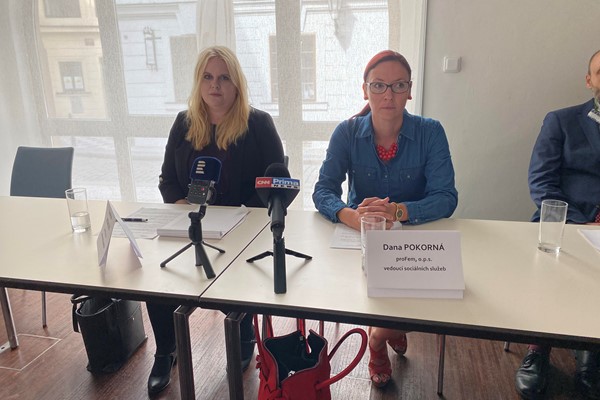30. června 2020
Today, on 30th June we organized a press conference in the Academic Conference Center (AKC) where we presented the first research findings of the qualitative study mapping the effects of a pandemic on the victims of gender-based violence (especially domestic violence).
As a result of the emergency state and related preventive measures, the number of domestic violence cases escalated. Consequently, the demand for the services of the organizations helping the domestic violence victims rose as well. The overall situation also highlighted gaps in providing help from state institutions.
The study confirmed that physical violence with visible signs is just a tip of the iceberg of domestic violence. Way more often, domestic violence includes the long-lasting combination of psychological, physical, sexual, or economic abuse and manipulation. Specifically, at times of the pandemic, the perpetrators could even more easily manipulate and control their victims, due to the restrictions of free movement and limitation of external social interactions of the victim.
The dynamic character and complexity of domestic violence and particularly the diverse needs of its victims call for adequate and flexible response. However, the situation linked to the corona crisis highlighted the evident and long-term shortcomings of providing help to victims facing various types of violence. It showed that especially state institutions, as police, courts and children protection services, are not able to provide this adequate and flexible help. In the first two weeks of the state of emergency, the state institutions fell silent. In the next phase, they started responding to the situations, however, their activity specifically in terms of victims’ needs did not cover the frequency, nor the intensity of the identified cases. Moreover, the state institutions did not fully utilize already existing tools for the prevention and resolution of domestic violence.
These and other findings were shared at the press conference, where we presented the outcomes of the abovementioned qualitative research. The research was realized in collaboration with Blanka Nyklova from Institute of Sociology of the Czech Academy of Sciences, Dana Moree from Faculty of Humanities of Charles University and non-profit organizations: ROSA – Women’s Center and Acorus.
Finally, the issue of violence against women was also discussed by the Ambassador of Canada to the Czech Republic, Ayesha Patricia Rekhi, who introduced the whole press conference. The Embassy of Canada to the Czech Republic financially supported this project and the research.


